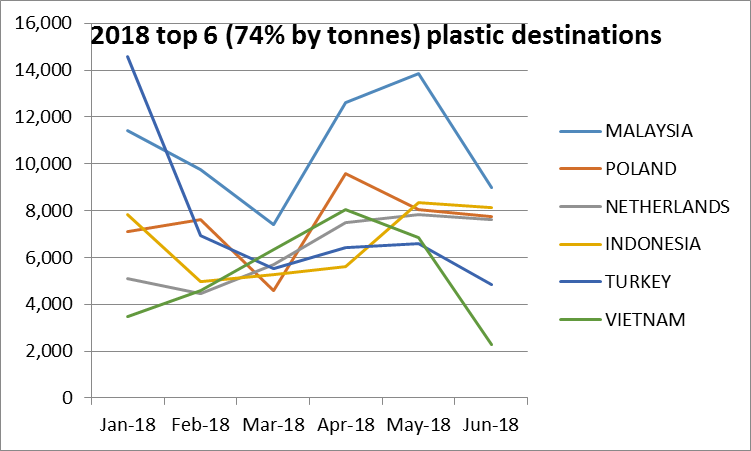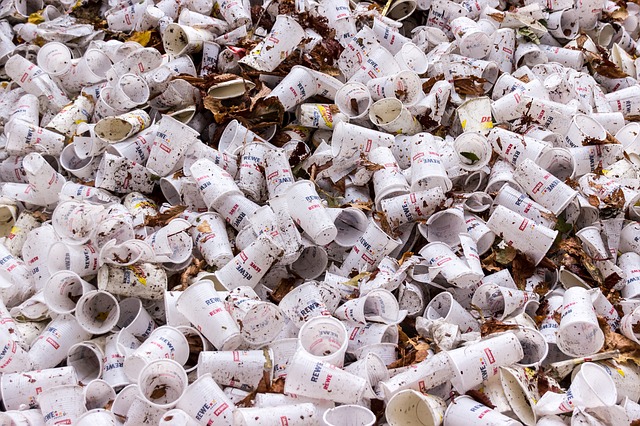 Have you ever wondered what happens to plastic after you put it in the recycling bin?
Have you ever wondered what happens to plastic after you put it in the recycling bin?
The world produces nearly 300 million tons of plastic every year, with only 9% of the plastic produced from 1950-2015 having been recycled. So, what happens to all of this plastic waste?
The majority of wealthy countries export their recyclables to developing countries to be processed as it is cheaper, and it reduces local landfills. This system also gives developing countries a reliable source of income. The United States is actually the largest single exporter of plastic in the world.
However, the country of Malaysia has had enough and is taking a stand against wealthy countries using developing countries as "dumping grounds." This has brought the issue of illegal recycling centers to the public’s attention.
A Dumping Ground
 Recently, 60 containers of contaminated waste were smuggled into illegal processing facilities in Malaysia. The country plans to return the 3,000 metric tons of nonrecyclable plastic waste back to its origin countries including the United States, Canada, the United Kingdom, and Australia.
Recently, 60 containers of contaminated waste were smuggled into illegal processing facilities in Malaysia. The country plans to return the 3,000 metric tons of nonrecyclable plastic waste back to its origin countries including the United States, Canada, the United Kingdom, and Australia.
These containers hold cables, contaminated milk cartons, CDs and bales of electronic and household waste. Malaysia has already shut down more than 150 illegal plastic recycling plants since last July and plans to continue to take measures to improve waste disposal procedures and etiquette.
This issue of developed countries seeking out “dumping grounds” was exacerbated (made worse) by China’s 2018 ban on the import of plastic waste due to pollution concerns. In 2016, China was responsible for recycling 2/3rds of the world’s recyclable plastic waste. However, when the ban was announced, this waste was diverted to developing countries like Malaysia, Vietnam, Thailand, and Indonesia.
Shortly after this diversion, other countries started implementing their own bans. Now, Thailand, Vietnam, Taiwan, and India have all implemented restrictions on plastic waste imports, which led to Malaysia becoming the largest waste disposal site.
A Global Issue
 Malaysian officials now point out that shipping back these contaminated containers is not a solution to our global waste issue, but rather a statement to the public and government officials worldwide that action needs to be taken to decrease plastic waste production. This message is specifically targeted at developed, wealthy countries like the United States.
Malaysian officials now point out that shipping back these contaminated containers is not a solution to our global waste issue, but rather a statement to the public and government officials worldwide that action needs to be taken to decrease plastic waste production. This message is specifically targeted at developed, wealthy countries like the United States.
Last year, 187 countries agreed to add plastic to the Basel Convention, a treaty that regulates the movement of hazardous materials between countries. Establishing policies through platforms like the Basel Convention, as well as the actions of individuals, can help decrease the plastic output by countries worldwide.
Recently, the European Union set a strong example by banning single-use plastic items, including straw, forks, knives, and cotton buds. While other countries have not yet made such policy decisions, you yourself can make a difference by steering clear of single-use plastic products and instead opting for reusable products.
Sources: AlJazeera, BBC, NYTimes, The Atlantic, Phys.org











